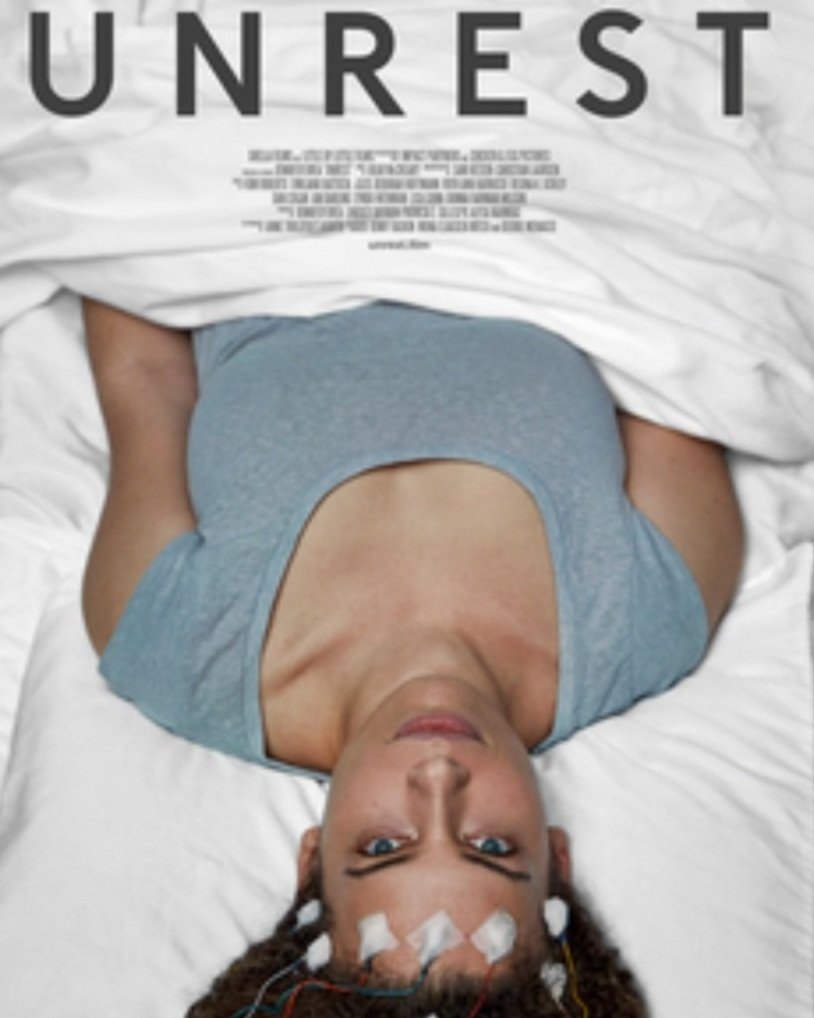How many of you have seen the documentary Unrest? It came out a few years back and is on Netflix right now. It is the story of Jennifer Brea.
Jennifer Brea is about to marry the love of her life when she’s struck down by a fever that leaves her bedridden. When doctors tell her “it’s all in her head,” she turns her camera on herself and her community as she looks for answers and fights for a cure.
Myalgic Encephalomyelitis (ME), commonly known as Chronic Fatigue Syndrome (CFS) or ME/CFS, is a devastating multi-system disease that causes dysfunction of the neurological, immune, endocrine and energy metabolism systems.
It often follows an infection and leaves 75% of those affected unable to work and 25% homebound are bedridden. An estimated 15-30 million people worldwide have ME. (Taken directly from unrest.film website)
It is a real and raw look at her journey, and the journey of others, with what is sometimes called Chronic Fatigue Syndrome or Myalgic Encephalomyelitis. Unfortunately, ME is an illness that has been very misunderstood by the medical community and often dismissed as not real.
I must admit, some of the documentary had me crying my eyes out. Especially the parts having to do with her husband and the guilt she feels for, what she sees as, ruining his life.
My own husband, who watched with me, said he related to the conversations in which Jennifer is telling her husband it is OK for him to leave her. Her husband makes it clear he is never going anywhere and tells her that just being near her is enough for him. Cue more tears.
So what about the husbands, wives, or partners of those who face a life-long illness with no cure? How do they continue to get up each day and live with our disease? They live with our disease too, just in different ways than us.
Unfortunately, I see many diagnosed people living with spouses who don’t know how to support them in the ways they need. Even worse, there are the spouses who don’t believe the symptoms are real.
I believe this partially stems from the diagnosed person not being able to communicate what they are feeling effectively, or feeling like they are too much of a burden… so instead they say nothing at all.
How can our loved ones know what we need if we don’t tell them?
It took a long time before I felt really comfortable laying it all out on the table — the good, the bad, and the very ugly parts of my autoimmune diseases. When I finally started sharing, and I mean really sharing, it became easier for everyone in my life.
Even in the best marriages it can feel like you are not in control of the situation and that can feel helpless and hopeless. Chronic illness can put a big strain on your relationship, but with commitment, communication, and patience there is always hope.
Communication is key.
Step one should be finding ways to talk openly about the challenges both people in the marriage face.
Finding the right balance between “normal” conversations and “sick” conversations will have the best results overall for the marriage.
There may be feelings of inadequacy, frustration with the lack of intimacy, guilt, money concerns, childcare concerns, depression, anxiety, cancelled plans, vacations never taken, and more.
Both people in the marriage can feel differently about the situation. Without expressing their feelings, resentment can come knocking on your door.
Ask your partner to learn about your illness with you.
If your partner does not take the initiative to learn about what you are going through on their own, ask them to read an article with you, join an online support group with you, or watch a documentary like Unrest, with you.
These joint activities can open the door to having a dialog about how both of you are feeling.
Capitalize on the good times.
Many of us dealing with chronic illness have good days and bad days, just like anyone else. It is so important to capitalize on the good days. If you wake up with less pain or more energy one day, grab on with both hands.
Let your spouse know that today is a better day than usual.
Have a bucket list ready of things you’ve been wanting to do together or local restaurants you both want to try. Soak up some quality time together whenever and wherever you can, because you don’t know what tomorrow will bring.
You can start your “good days bucket list” by you and your spouse writing down 10 to 20 things you want to do together, or places you want to go. It can be as simple as a walk in the park, or trying that new organic restaurant in town, or even a trip to Bali.
Be grateful.
I am grateful every day that my husband didn’t leave when I told him he could early on in our relationship. I try to let him know this as much as I can.
If you are lucky enough to have a compassionate partner who is by your side “in sickness and health”, be sure to thank them for all they do. Let them know everything they do does not go unnoticed, and that you are grateful for their support. It can go a long way.
If you need support or guidance around effectively communicating and advocating for yourself with your spouse, family, friends, or doctors, schedule a free call with me. Learning to be an advocate for yourself is one of the steps in The 5-Step Framework I work on with clients.
Whether it is a doctor or spouse, you need to be able to speak up, advocate for yourself, and communicate effectively to get the support and care you need.
#meaction #millionsmissing





